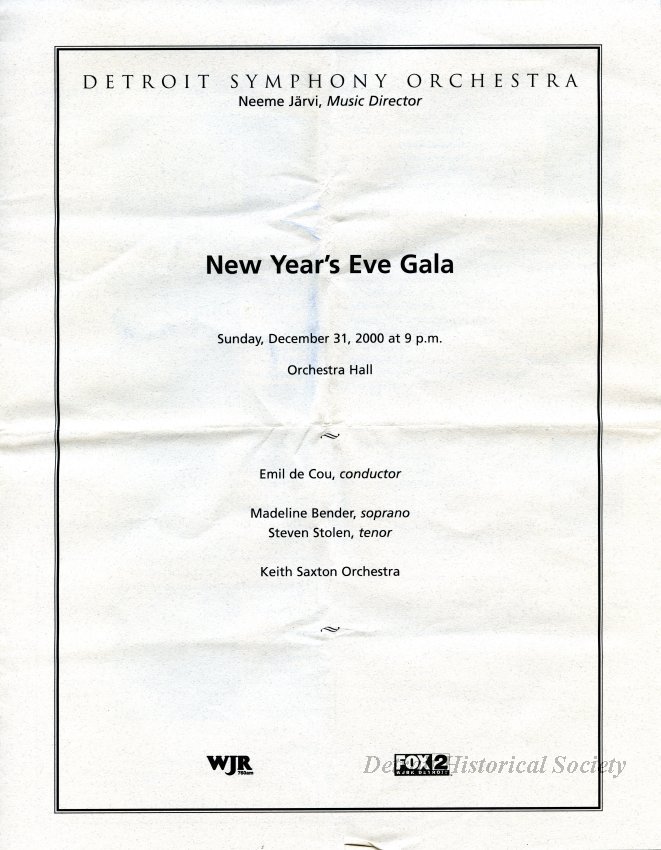Encyclopedia Of Detroit
Järvi, Neeme
Conductor Neeme Järvi was born in Tallinn, Estonia on June 7, 1937. He studied music at the Tallinn Music School, specializing in conducting and percussion. In 1955 he attended the Leningrad Conservatory. Järvi was an active proponent of music in his native Estonia. He co-founded and served as artistic director of the Estonian Radio Chamber Orchestra. Furthermore, he was the director of the Estonian Radio & Television Orchestra, founded the Tallinn Chamber Orchestra, and was the chief conductor and artistic director of the Estonian State Symphony Orchestra. He conducted the first performances of Gershwin’s Porgy and Bess and Strauss’ Der Rosenkavalier in the USSR. These activities helped to make Järvi well known throughout the USSR and Eastern Europe.
In 1979, Järvi directed Arvo Pärt’s Credo without first presenting it to the Communist Party or the Composers’ union, which created a large controversy. As a result, Järvi and his family chose to immigrate to the United States in 1980. Once in the U.S., Järvi received two contract offers from large agencies: Columbia Artists and International Concert Management. Järvi chose to sign with Columbia Artists and soon conducted with the Philadelphia Orchestra, the Boston Symphony, the San Francisco Symphony Orchestra, the New York Philharmonic, and the Cincinnati Symphony Orchestra.
Järvi's performances received great critical acclaim, and he was awarded a number of honors. Among those were the posts of principal guest conductor for the City of Birmingham Symphony Orchestra in England from 1981 to 1983, music director of the Gothenburg Symphony Orchestra in Sweden in 1982, music director of the Royal Scottish Orchestra from 1984 to 1988, and principal guest conductor of the Japan Philharmonic. In 1990, Järvi was named Conductor Laureate for Life by the Royal Scottish National Orchestra. It is also the year he was selected to become the musical director for the Detroit Symphony Orchestra.
Järvi served as music director for the DSO for the next 15 years. His tenure saw the DSO through a large building campaign resulting in a major expansion of Orchestra Hall. Included in that expansion was the Max M. and Marjorie S. Fisher Music Center and a performing arts high school. Järvi was also interested in expanding the appeal of the orchestra to a more diverse audience, particularly for the city’s large African American community. He accomplished this in a number of ways—by selecting and performing works written by African American composers and through support for the Sphinx Organization.
Six months after suffering a stroke in 2001, Järvi announced that he would leave the DSO in 2005. At the time of his retirement from the Detroit Symphony Orchestra in 2005, he had conducted over 1,000 concerts in 125 cities with 72 different orchestras.


